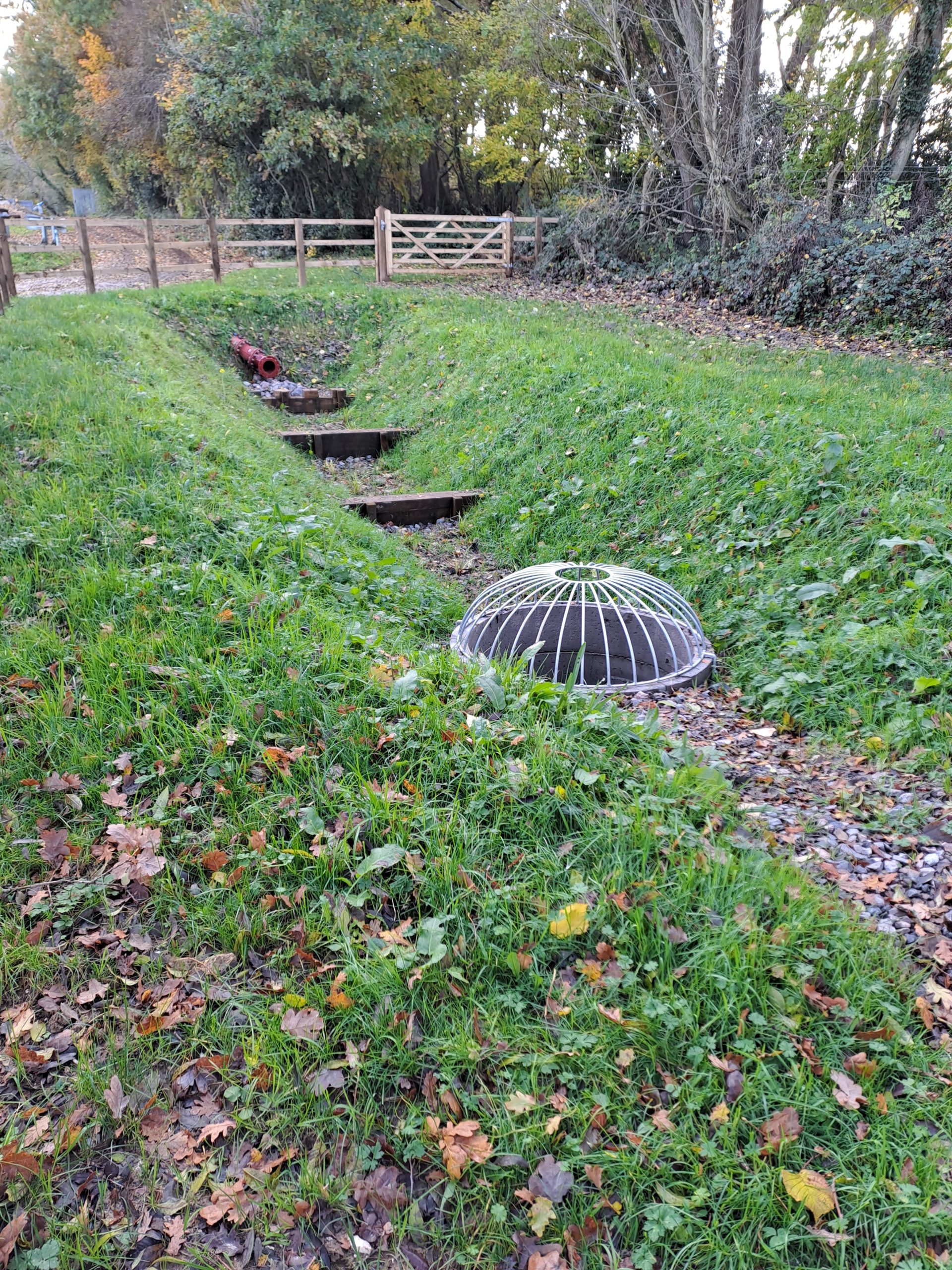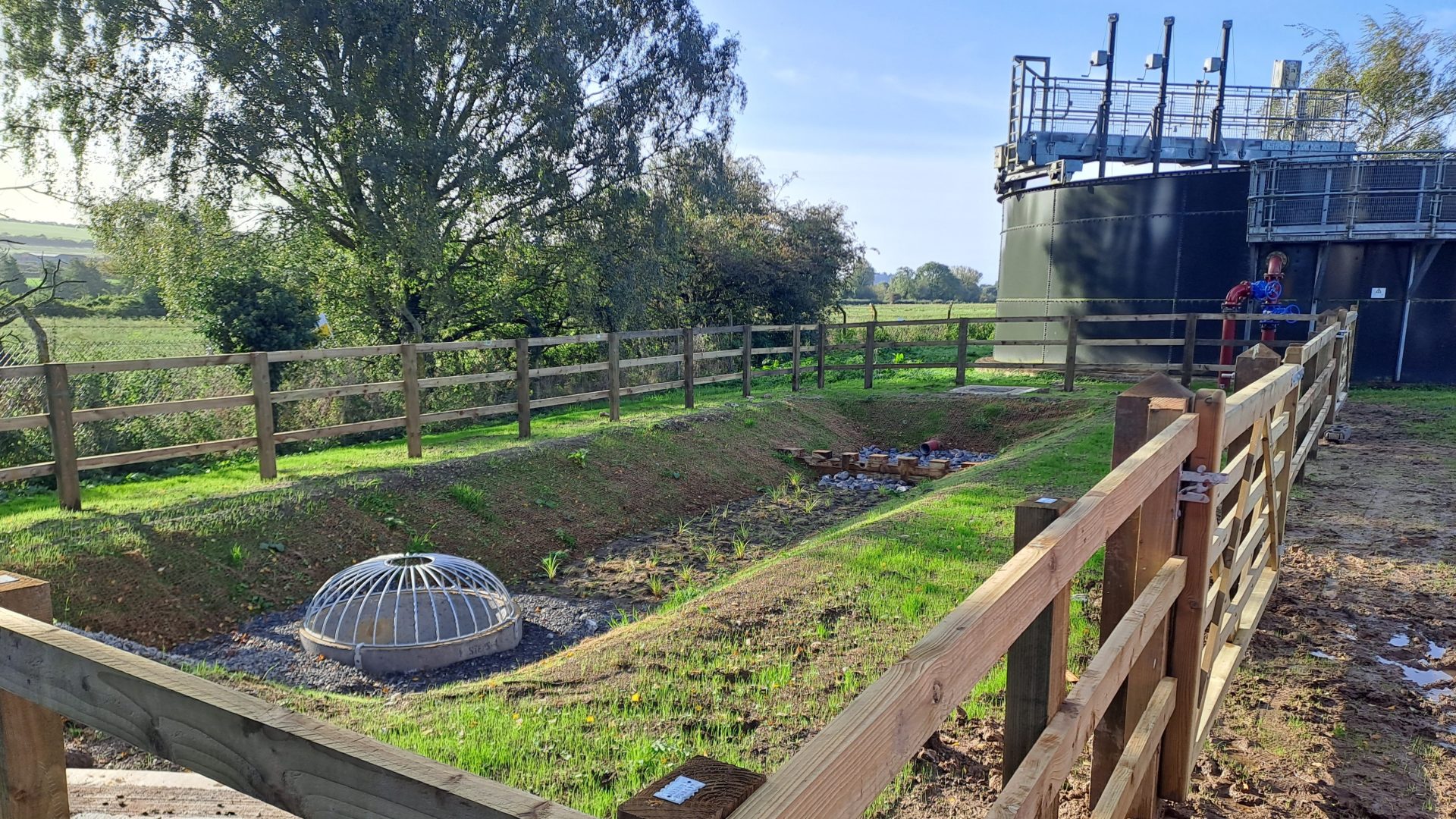
A series of innovative ecological projects under way in Wiltshire are helping to expand natural methods to protect some of the most precious waterways near the city of Salisbury.
As the annual World Wetlands Day is marked on 2 February – raising awareness to encourage the conservation and restoration of these eco-systems globally – Wessex Water is trialling smaller-scale versions to support the drive to reduce the knock-on impact of excessive groundwater on the nearby environment.
‘Bio-swales’ of varying sizes have been dug at four rural water recycling centres around the medieval cathedral city, then lined to prevent contamination and split into cells.
Layered with soil, marginal plants that are accustomed to growing in water have been planted in the swales, which will improve the quality of the water before it discharges into a watercourse.
Three of the sites, near the villages of Fovant, Barford St Martin and Hurdcott have already been planted, with a fourth at Great Wishford nearing completion.
The bio-swales will be fully commissioned once the plants have been allowed to mature for several months to ensure their roots are strong enough to deal with storm water overflows,
It means that after a storm, any overflows from the storm storage tanks at the sites will pass through the swales, where the plants and micro-organisms in the soil get to work to improve the water quality.
The £500,000 investment in these nature-based solutions is helping to improve the quality of water being returned to the tributaries of rivers in the east of the county, including the Bourne, the Nadder and the Wylye.
Project manager Al Barlow said:
“These bio-swales range from about 12 to 20 metres long and they operate in pretty much the same way as larger wetland projects, like the ones Wessex Water is planning and delivering throughout the region.
“We have chosen these sites for the trial because it helps to build on our existing programme of sealing our systems to prevent groundwater infiltration in this area of Wiltshire, which can cause storm overflows to operate automatically.
“By using our existing sites where space is available, we’re also making the most of our current facilities. The construction of these bio-swales will also have a positive biodiversity net gain.
“We hope to make these bio-swales ‘live’ by the autumn of this year once the plants are mature enough to cope with the poor weather and the high storm water flows.’’
By the end of 2024, Wessex Water will have completed 10 nature-based solutions for stormwater treatment pilot projects, including six similar bio-swales, repurposing redundant reed beds and the installing floating wetlands on storm lagoons at three locations within its region.
Senior Environmental Scientist Lorraine Isgar said:
“We’re hopeful that all of these will specifically address storm water overflows in areas where there is high groundwater infiltration and sample monitoring of them will continue to help with the design of future projects.
“Wetlands schemes are also being planned in collaboration with Wiltshire Wildlife Trust and other community groups.”
Two major constructed wetlands projects are also in operation within the company’s region, the one for wastewater treatment at Cromhall Water Recycling Centre in Gloucestershire.
A second, two-stage, constructed wetland is helping improve the quality of water entering Durleigh Reservoir near Bridgwater in Somerset, which is used to supply drinking water to the area.
Wessex Water’s proposed Business Plan between 2025 and 2030 also includes the design and construction of over 30 large wetland schemes across the region to provide treatment to groundwater induced storm overflows. The plan is currently being considered by industry regulators.



